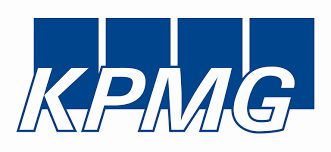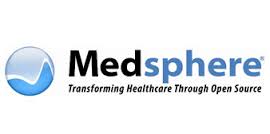healthcare organizations
See the following -
63% of practice management software purchases are replacements
EHRs aren’t the only piece of health IT getting a makeover in a large number of healthcare organizations: providers are currently ripping out and replacing practice management (PM) and revenue cycle management (RCM) software in a bid to modernize their infrastructure and meet the challenges of ICD-10, accountable care, and compliance with other regulatory initiatives, including meaningful use.
- Login to post comments
81% Of Healthcare Organizations Have Been Compromised By Cyber-Attacks In Past 2 Years: KPMG Survey
 Eighty-one percent of health care executives say that their organizations have been compromised by at least one malware, botnet, or other cyber-attack during the past two years, and only half feel that they are adequately prepared in preventing attacks, according to the 2015 KPMG Healthcare Cybersecurity Survey.
Eighty-one percent of health care executives say that their organizations have been compromised by at least one malware, botnet, or other cyber-attack during the past two years, and only half feel that they are adequately prepared in preventing attacks, according to the 2015 KPMG Healthcare Cybersecurity Survey.
- Login to post comments
An interoperability update: Do we need more carrots and sticks?
 Earlier this year, the ONC released the Trusted Exchange Framework and Common Agreement (TEFCA), which responds to a mandate included in 2016’s 21st Century Cures Act and lays out principles, terms and conditions on which to base an interoperability framework that healthcare organizations can embrace. “This means patients who have received care from multiple doctors and hospitals should have their medical history electronically accessible on demand by any other treating provider in a network that signed the Common Agreement,” said National Coordinator for Health IT Donald Rucker in a recent blog post. To achieve that goal, TEFCA is divided into parts A, the principles, and B, the terms and conditions, which is also where the rubber meets the road for many who live in the healthcare IT world...
Earlier this year, the ONC released the Trusted Exchange Framework and Common Agreement (TEFCA), which responds to a mandate included in 2016’s 21st Century Cures Act and lays out principles, terms and conditions on which to base an interoperability framework that healthcare organizations can embrace. “This means patients who have received care from multiple doctors and hospitals should have their medical history electronically accessible on demand by any other treating provider in a network that signed the Common Agreement,” said National Coordinator for Health IT Donald Rucker in a recent blog post. To achieve that goal, TEFCA is divided into parts A, the principles, and B, the terms and conditions, which is also where the rubber meets the road for many who live in the healthcare IT world...
- Login to post comments
Black Book Releases Research on "The Interoperability Tangle"...HIE Replacements, Middleware and FHIR
 2,012 provider HIE users and 2,300 payer HIE users, as well as 4,100 prospective HIE users of all user types were polled to understand the importance of interoperability in their strategic planning initiatives, as well as their ongoing and new challenges in areas such as connectivity and data exchange. Between Q3 2015 and Q1 2016, the survey recorded growing HIE user frustration over the lack of standardization and readiness of unprepared providers and payers...“Every stakeholder in the healthcare delivery process cannot establish the infrastructure needed to support interoperability, as evidenced by 83% of physician practices responding and 40% of hospitals, that currently admit they are still in the planning and catch up stages of sending and sharing secure, relevant data, “ said Doug Brown, Managing Partner of Black Book.
2,012 provider HIE users and 2,300 payer HIE users, as well as 4,100 prospective HIE users of all user types were polled to understand the importance of interoperability in their strategic planning initiatives, as well as their ongoing and new challenges in areas such as connectivity and data exchange. Between Q3 2015 and Q1 2016, the survey recorded growing HIE user frustration over the lack of standardization and readiness of unprepared providers and payers...“Every stakeholder in the healthcare delivery process cannot establish the infrastructure needed to support interoperability, as evidenced by 83% of physician practices responding and 40% of hospitals, that currently admit they are still in the planning and catch up stages of sending and sharing secure, relevant data, “ said Doug Brown, Managing Partner of Black Book.
- Login to post comments
careMESH Launches its HL7 FHIR-Based Provider Directory in the District of Columbia
 careMESH, the only service provider to guarantee digital delivery of patient health information to any US-based clinician, today announced that is has implemented its National Provider Directory for users of the DC Health Information Exchange (HIE) in partnership with the Chesapeake Regional Information System for our Patients (CRISP)."We deployed the careMESH directory so that our DC providers would have a central place to locate the most up-to-date information about each other including their preferred communication preferences and digital contact information," said Ryan Bramble, Executive Director for CRISP DC. Read More »
careMESH, the only service provider to guarantee digital delivery of patient health information to any US-based clinician, today announced that is has implemented its National Provider Directory for users of the DC Health Information Exchange (HIE) in partnership with the Chesapeake Regional Information System for our Patients (CRISP)."We deployed the careMESH directory so that our DC providers would have a central place to locate the most up-to-date information about each other including their preferred communication preferences and digital contact information," said Ryan Bramble, Executive Director for CRISP DC. Read More »
- Login to post comments
Diagnostic Errors Top ECRI Institute’s Patient Safety Concerns for 2018
ECRI Institute names diagnostic errors the number one concern on its 2018 Top 10 Patient Safety Concerns for Healthcare Organizations. Each year, approximately 1 in 20 adults experiences a diagnostic error, according to published studies. These errors and delays can lead to care gaps, repeat testing, unnecessary procedures, and patient harm. “Diagnostic errors are not only common, but they can have serious consequences," says Gail M. Horvath, MSN, RN, CNOR, CRCST, patient safety analyst, ECRI Institute. "A lot of hospital deaths that were attributed to the normal course of disease may have been the result of diagnostic error."
Read More »
- Login to post comments
Germany's Healthcare System Is Using This Open Source Standard For Encrypted Instant Messaging
 A fast-growing open communication platform has been picked by the German healthcare system to support instant messaging between health professionals and organizations across the country. Called Matrix, the platform will provide German developers with the infrastructure, tools and protocols to build custom-made applications that will let up to 150,000 healthcare organizations securely share messages, data, images and files.
A fast-growing open communication platform has been picked by the German healthcare system to support instant messaging between health professionals and organizations across the country. Called Matrix, the platform will provide German developers with the infrastructure, tools and protocols to build custom-made applications that will let up to 150,000 healthcare organizations securely share messages, data, images and files.
- Login to post comments
Healthcare's Biggest Lie: Employers Can't Do Anything About Massive Pricing Failure
Astute observers have stated controlling healthcare costs is almost impossible. TIME magazine devoted their longest story in their history to this topic in The Bitter Pill by Steven Brill that was turned into a book. The solution to the problem that is outlined below addresses the massive pricing failure present in healthcare. That is, in most markets higher prices equates to higher quality. In healthcare, frequently the opposite is true. For example, it stands to reason that surgeons who do a procedure frequently are far more efficient and have far fewer complications than those who perform surgeries more infrequently...
- Login to post comments
Hospitals Paying the Price of Not Investing in IT Security
 The fact is, most of healthcare simply doesn’t spend enough on data security. In a study conducted by HIMSS Analytics and Symantec that polled 115 IT and security professionals in hospitals with more than 100 beds, more than half (52 percent) said their organization dedicated between zero and 3 percent of the IT budget to security. Just 28 percent said they spent between 3 and 6 percent of IT budget on security. “All of this makes healthcare organizations rich targets for cybercriminals,” reads the study summary.
The fact is, most of healthcare simply doesn’t spend enough on data security. In a study conducted by HIMSS Analytics and Symantec that polled 115 IT and security professionals in hospitals with more than 100 beds, more than half (52 percent) said their organization dedicated between zero and 3 percent of the IT budget to security. Just 28 percent said they spent between 3 and 6 percent of IT budget on security. “All of this makes healthcare organizations rich targets for cybercriminals,” reads the study summary.
- Login to post comments
Intersection of ICD-10 And Meaningful Use: Clinical Documentation Improvement
As hospitals, health systems and payers navigate the new risk-bearing landscape, synergies exist when clinical documentation improvement strategies are expanded to address both meaningful use (MU) SNOMED CT requirements and ICD-10. While the magnitude of the ICD-10 transition itself and the ongoing rumors of additional delays may tempt some organizations to pause in their pursuit of readiness, the bottom line is that advantages to clinical documentation can be realized even before the transition by using SNOMED CT within electronic health records...
- Login to post comments
Medsphere Closes $32 Million Financing Led by Morgan Stanley Expansion Capital
 Medsphere Systems Corporation...today announced the closing of $32 million in financing from Morgan Stanley Expansion Capital and East West Bank. The company will use the funds to address accelerating demand for Medsphere's comprehensive suite of healthcare IT solutions and services, and for strategic acquisitions. "Medsphere's breadth of offering combined with their depth of functionality and overall affordability differentiates it from the rest of the industry," said Bill Reiland, Managing Director of Morgan Stanley Expansion Capital and Head of Morgan Stanley Expansion Credit. "The company is a true innovator, giving hospitals and clinics the workflow and technology they need at prices they can pay. We're excited to invest in Medsphere as they continue to share their unique offering with healthcare organizations."
Medsphere Systems Corporation...today announced the closing of $32 million in financing from Morgan Stanley Expansion Capital and East West Bank. The company will use the funds to address accelerating demand for Medsphere's comprehensive suite of healthcare IT solutions and services, and for strategic acquisitions. "Medsphere's breadth of offering combined with their depth of functionality and overall affordability differentiates it from the rest of the industry," said Bill Reiland, Managing Director of Morgan Stanley Expansion Capital and Head of Morgan Stanley Expansion Credit. "The company is a true innovator, giving hospitals and clinics the workflow and technology they need at prices they can pay. We're excited to invest in Medsphere as they continue to share their unique offering with healthcare organizations."
- Login to post comments
Open Source Software Is Transforming Healthcare
 In the summer of 2022, the UK government and NHS England published its Open Source Policy, stating that open source technology is: Particularly suitable for use within the healthcare industry where, through active collaboration between IT suppliers and user/clinicians communities, solutions can be honed to maximise benefits to delivery of health and social care. The public statement by NHS England is just the latest development in a broader trend: The wholehearted embrace of open source software by the healthcare sector. And no wonder; open source presents myriad opportunities for this most complex of industries, with potential solutions across various sub-sectors. Yes, open source is now powering everything from medical wearables to healthcare human resource management.
In the summer of 2022, the UK government and NHS England published its Open Source Policy, stating that open source technology is: Particularly suitable for use within the healthcare industry where, through active collaboration between IT suppliers and user/clinicians communities, solutions can be honed to maximise benefits to delivery of health and social care. The public statement by NHS England is just the latest development in a broader trend: The wholehearted embrace of open source software by the healthcare sector. And no wonder; open source presents myriad opportunities for this most complex of industries, with potential solutions across various sub-sectors. Yes, open source is now powering everything from medical wearables to healthcare human resource management.
- Login to post comments
OSEHRA Adopts New Membership Structure
 At the Open Source Electronic Health Record Alliance (OSEHRA), we have always been committed to the needs and desires of the open source community. Over the years we have embraced community input by improving our website, our events, and our services. Recently, we made another improvement--as of November 1, OSEHRA has a new dues structure for membership. We have adopted this new structure based upon requests from our community to transition from a revenue-based system to a benefits-based system of choice.
At the Open Source Electronic Health Record Alliance (OSEHRA), we have always been committed to the needs and desires of the open source community. Over the years we have embraced community input by improving our website, our events, and our services. Recently, we made another improvement--as of November 1, OSEHRA has a new dues structure for membership. We have adopted this new structure based upon requests from our community to transition from a revenue-based system to a benefits-based system of choice.
- Login to post comments
RAIN Live Oak Demonstrates New Standard for Healthcare Provider Directories
Last month, RAIN Live Oak, a member of the California Association of Health Information Exchanges, participated in the Integrating the Healthcare Enterprise (IHE) Connectathon 2015 to demonstrate the IHE Profile for Healthcare Provider Directory (HPD). Participation in the Connectahon, a week-long interoperability-testing event, was a significant opportunity for the advancement of the HPD standard, which supports management of healthcare provider information in a directory structure, and it proved to be an undeniable success. RAIN is a participant of the California Trusted Exchange Network (CTEN), which utilizes a federated architecture for Directory Services using HPD specifications. Read More »
- Login to post comments
University of Utah Health and Intermountain Healthcare Receive $3.8 Million to Develop Advanced Open Source Cancer Screening Tool
 Researchers from the University of Utah Health, Intermountain Healthcare, and Huntsman Cancer Institute received a grant for $3.8 Million from the National Cancer Institute to develop an advanced cancer screening tool. The new tool will couple electronic health record technologies with advanced clinical decision support (CDS) tools to screen for several types of cancer and identify and manage high risk patients within primary care settings and the broader care delivery system.
Researchers from the University of Utah Health, Intermountain Healthcare, and Huntsman Cancer Institute received a grant for $3.8 Million from the National Cancer Institute to develop an advanced cancer screening tool. The new tool will couple electronic health record technologies with advanced clinical decision support (CDS) tools to screen for several types of cancer and identify and manage high risk patients within primary care settings and the broader care delivery system.
- Login to post comments